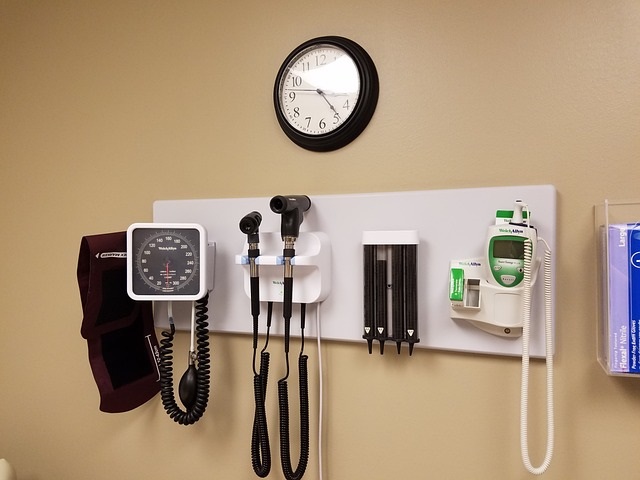The Medicare system is intricate and challenging to understand. The policy has been simplified into four distinct categories, each covering a specific aspect of medical treatment, from hospitalization to doctor visits to pharmaceuticals. Because Medicare plans are listed alphabetically, from A to D, there could appear to be just a few alternatives to ponder.
The original intent of Medicare was to provide all eligible Americans with the same basic level of medical care and insurance once they become members. In addition, beneficiaries obtain some coverage in areas like prescription drugs. This article discusses 5 tips for understanding your medicare insurance plan, which could assist you with better decision-making.
1. Understand the Difference Between the Original and Medicare Advantage Plan
This past fall, thousands of millions of Americans voted on their Medicare insurance options. Over 40% chose Medicare Advantage, which incorporates Medicare Parts A and B, rather than Original Medicare.
Additional benefits, like hearing, vision, and dental insurance, are included in many Medicare Advantage plans. More so, a Medicare Advantage plan may provide in-home care visits to fill in care gaps, detect chronic illnesses early, and so on. Making the most of your plan requires understanding its supplementary advantages and features not originally in the initial plan.
2. Review the Current Plan Covers
The plan documentation or the insurer’s website is typically the best place to go for details on coverage and benefits. Make sure you “work out” all of your possibilities by watching for perks like fitness benefits, which may be included in many Medicare Advantage plans.
3. Figure Out How To Save Money on Prescriptions
The basic Medicare plan does not cover prescription drugs (Parts A and B). Medicare Part D plans are available independently, but many people prefer to enroll in a Medicare Advantage plan, which frequently includes pharmaceutical coverage.
One method to save money is to take advantage of pharmacy delivery services offered by your insurance plan. Some pharmacies provide home delivery options that allow you to save money on a three-month supply of medication compared to buying it from a regular pharmacy.
Knowing if your plan has a recommended pharmacy chain if you want to utilize a retail drugstore is essential. As a result, your co-payment may be reduced.
Reducing your medical costs by switching to less expensive medication is possible. Have your doctor check for a cheaper, equally effective alternative on your plan’s formulary (the catalog of covered prescriptions).
4. Understand and Optimize Preventive Coverage
All Medicare recipients can take advantage of the annual preventative health exam provided by Original Medicare. Breast and colonoscopy screenings, for example, are performed as part of this package. When health issues are detected early, they are easier to treat. The doctor’s office appointment you schedule once a year is a great time to discuss your health goals for the coming year and make a plan to reach them with the support of your medical professional.
Some medical facilities’ Medicare Advantage plan includes the convenient House Calls service, which allows preventative care to be delivered to your home. The program will enable members to access critical drug information more easily and discuss cost-effective treatment options with their healthcare professionals. In addition, House Calls can facilitate members’ access to essential services and resources, including transportation, financial aid, and food.
5. Annual Expenses Planning Factor With Your Medicare
Personal Medicare costs might range substantially depending on their specific circumstances and the Medicare plan they select. About 80% of the cost of medical care, including doctor’s visits, hospital stays, and lab tests, is paid for by Original Medicare. There is no annual cap on the percentage of expenses that the individual is accountable for paying.
The out-of-pocket maximum in a Medicare Advantage plan is set at a reasonable amount each year. Once your annual deductible and coinsurance are paid, your plan will pay 100% of the cost of Medicare-approved treatments for the rest of the year.
If you have recently been diagnosed with a severe disease or are preparing for surgery, having that cap can give you much-needed peace of mind. Still, you can get optimum medicare advantage plans in Nebraska with the help of licensed agents.
Bonus Tips
Medicare Advantage plans often collaborate with a pre-established group of healthcare professionals and facilities. The plans include contracts with the network providers so members can get the treatment they need at discounted rates. Plan participants’ out-of-pocket expenses can thus be reduced. While members of Medicare Advantage plans may be able to receive care from providers outside of their plan’s established network, doing so typically results in higher out-of-pocket costs.
Fitness programs, vitamins, hearing aids, and alternative health services like acupuncture may all be discounted by some Medicare Advantage plans. The financial benefits of hearing aid could be several thousand dollars annually. The extra encouragement you need to maintain a healthy lifestyle might be the money you save on supplements and a gym membership.
You may apply for coverage without medical underwriting within the Medicare Supplement Open Registration Period. Only now can you get the best Medicare Supplement Insurance policy on the market.
Nevertheless, if you deregister from your Medicare Supplement Insurance plan to join a Health Plan for the first time and then switch plans within a year, you could qualify for assured issue for Medicare Supplementary coverage.
Also read: What is Not Covered in Health Insurance?
No part of the federal Medicare system or the national government is involved with or endorses Medicare Supplement health plans. The availability, terms, and conditions of any given plan are subject to the specifics of that plan and applicable laws, rules, and regulations. The article’s broad strokes aren’t meant to provide details about any strategy. Please refer to the formal documentation for more information about any particular plan.
Conclusion
Making the switch from private insurance to Medicare could be challenging. Most employer-sponsored health insurance plans have few coverage options and require employees to contribute a hefty, albeit decreasing, portion of the premium. There are many options to consider with Medicare. The premiums can be high, and you would not find somebody to assist you make sense of it all.







